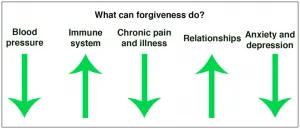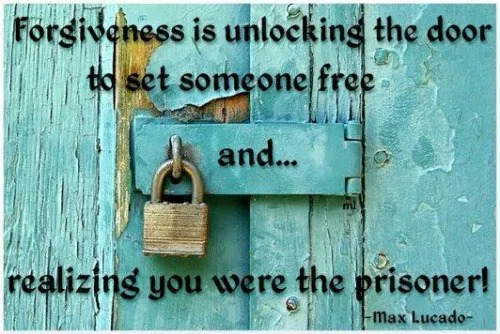An Eye For An Eye Will... Why You Must Master the Art of Forgiveness
Human beings are wired to respond to negativity with more negativity. When insulted by a friend, forsaken by a lover or treated badly by an enemy; most people are motivated at some level to seek revenge against the transgressor. But to reply to transgression with more transgression can only lead to more destruction. This feeling is deeply ingrained in our nature biologically, psychologically and culturally. Overcoming it is probably one of the strongest things that you might have to do. Yet do it you should. It’s a scientific fact that mastering the art of forgiveness will yield immeasurable benefits for yourself.

Lewis Smedes said, “It would give us some comfort if only we could only forget a past that we cannot change. If we could only choose to forget the cruellest moments, we could, as time goes on free ourselves from their pain. But the wrong sticks like a nettle in our memory. The only way to remove the nettle is with a surgical procedure called forgiveness.” It is easy to see why holding on to anger and self-pity can be the more attractive option. Rage fuels us. When the world simply moves on, not caring about the injustices that were dealt to us, then holding on to grudges and thoughts of revenge gives a modicum of closure to the ravaged individual. But without forgiveness, such wounds would never heal. Forgive not to benefit the person who has wronged you, but to benefit the person who matters the most- yourself.

Seeking revenge is a fundamental human motivation, assessed psychologists Steven Reiss and Susan M Havercamp while analysing the different character traits that are innately human. That means we humans take revenge as seriously as we take our food, water and internet. In their paper, “The Psychology of Forgiveness”, Michael E. McCullough and Charlotte vanOyen Witvliet explore why exactly people take to revenge so instinctively and how beneficial it is for our heart, health and sanity if we just learned to forgive and move on.
Experts may be split on determining the exact definition of forgiveness, but the core meaning is the same across all dimensions. People come to view those, who have offended them or transgressed against them, with increasing positivity and decreasing negativity. The ability to forgive those who have wronged us is far more difficult for those of us who have not received any sign of remorse from the offender. In such a case, forgiveness is in the best interest of the victim. It helps one deal with the hurt rendered to us. We learn to forgive and forget just so we can move on and have newer experiences. As such, forgiveness helps provide closure to one particular painful chapter in life and helps usher in a new one.

Hands down, people of the forgiving variety are better than those who don’t or have difficulty forgiving. According to Mauger, Saxon, Hamill and Panell, 1996, the former report much less negative affect such as anxiety, depression and hostility, than the latter. People who can forgive easily are also less ruminative, narcissistic, exploitative and more empathetic than those who can’t forgive more easily. They tend to endorse socially desirable attributes and characteristics more. They also experience much lower levels of passive aggression, neuroticism and hostility. These character traits are found in high levels among those who struggle with forgiveness.
Researchers have been conducting the link between forgiveness and well-being since 1964 and it has been found that the tendency to forgive others is directly related to lower depression, hostility, anger, paranoid ideation and interpersonal sensitivity. In 1999, researchers found that, the experience of forgiving God was a powerful booster of positive mental health. Reconciling with a higher power resulted in lower levels of depression and anxiety, among other health benefits.

Image Source : elephantjournal“Without being forgiven, released from the consequences of what we have done, our capacity to act would be confined to a single deed from which we could never recover. We would remain the victims of its consequences forever,” ponders Hannah Arendt. Even if you should never choose to actively seek revenge, but simply nurse a grudge or be gleeful when bad things happened to your transgressor, know that your are harming yourself more than you realize. You are striking at the core of your humanity and making it difficult to ever go back. It is easy to say and hard to follow, but forgive and move on. You deserve it.







